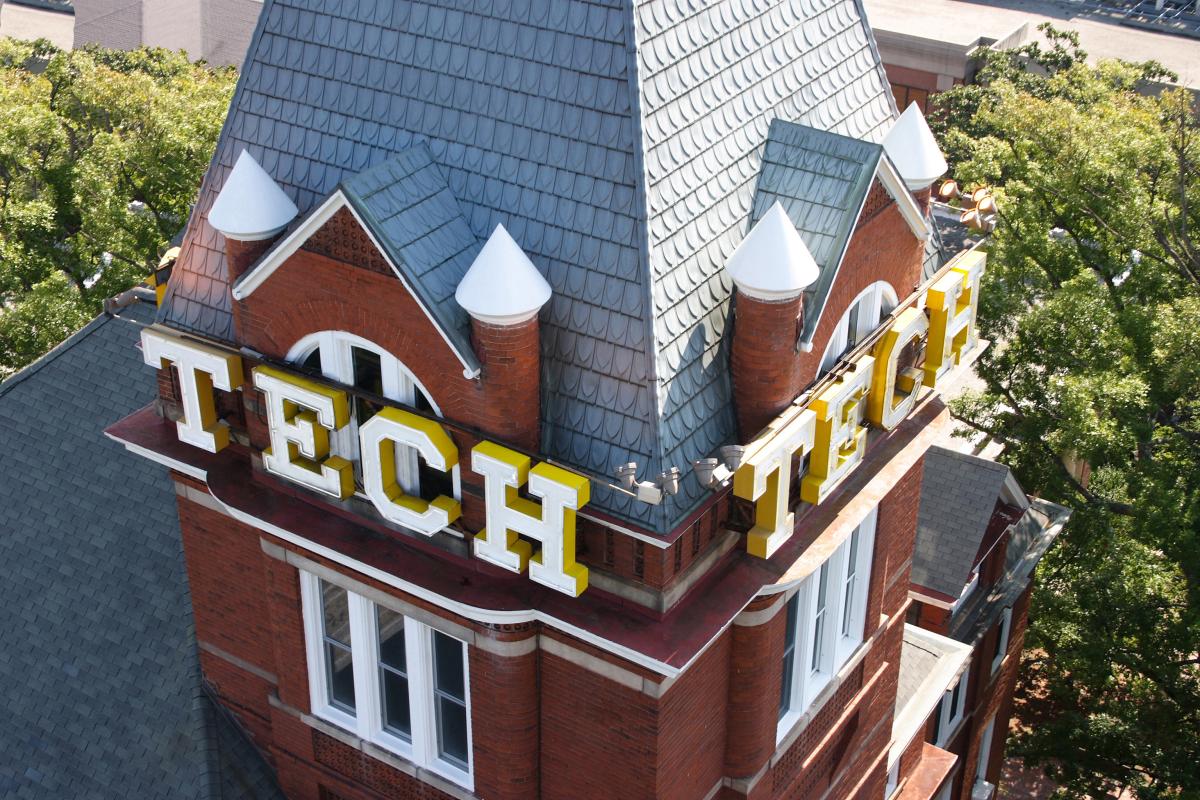
Georgia Tech is no stranger to initiatives that bridge the academic and residential aspects of college life. The ThinkBig program, for one, offers like-minded undergrads the chance to live together on one floor of a residence hall and delve into shared interests under the informal guidance of Tech professors. But the Grand Challenges Living Learning Community will take this concept even further when it debuts at the beginning of the 2012-13 academic year, encouraging its students to become leaders in tackling the most pressing issues facing the world today.
The 110 inaugural participants are incoming freshman eyeing a variety of majors, and for Grand Challenges faculty director Robert Butera, EE 91, a professor jointly appointed in the School of Electrical and Computer Engineering and the Wallace H. Coulter Department of Biomedical Engineering, that interdisciplinary component is key.
“The world is full of examples of superior technology that never gets traction with the general public because it doesn’t meet needs or it’s not marketed correctly,” he says. “We really need people thinking about the big problems from every different direction.”
Butera is spearheading the program with Wes Wynens, director of the Leadership Education and Development Programs for Student Affairs and an adjunct professor in Tech’s School of Public Policy. Michael Macmillan, AE 11, served as assistant director during the early planning stages.
Grand Challenges students will occupy Howell Residence Hall on East Campus, determining their own community structure and governance policies. Collaboration will be the main focus of both residential life and the program’s two required courses.
In the fall, Wynens will helm a class aimed at developing the personal and interpersonal skills necessary for effective teamwork, taking an objective look at what makes healthy group dynamics and how to correct unhealthy ones. In the spring, Butera will help students put that knowledge to work via team projects focusing on big-picture issues. In lieu of a final exam, the groups will present pitches for funding to continue their work, earning grant money for travel or further research.
Butera has recruited at least 20 other Tech faculty members to lend their expertise. Each has pledged to drop by Howell twice a month for lunch with the Grand Challenges teams, but Butera hopes they’ll do more. The idea is to give students and professors the opportunity to make organic connections and split into interest groups, breaking down the barriers between faculty and students.
That’s just one of the ways the program models itself on the first goal of Tech’s Strategic Plan—to be among the most highly respected technology-focused learning institutions in the world—by enriching student experience, innovating instruction methods and developing the campus as a vibrant environment for living, working and playing.
The participants were all hand-picked from upwards of 2,500 accepted students. “A lot of people who don’t necessarily look good on paper are really successful here at Tech,” Macmillan says. “So even if they didn’t have a great score on their SAT or on their leadership involvement, there was still a really good chance that the activities that they did in high school matched up perfectly with the goals of the program.”
Before the Grand Challenges first-years had flipped the tassels of their high school graduation caps, many of them were already working to shape their new community at Tech, making introductions and hatching plans on the program’s Facebook page. By early summer, they were organizing group outings and a lending library.
The future classmates also sent Macmillan off in search of a piano—many of the incoming students play, or would like to learn. He found one, though he hasn’t quite figured out where they’re going to put it. That’s one of many questions the program will face during its first year—one of its own “grand challenges.” Another: What will the second year look like? Once a new freshman class is recruited, what of their predecessors’ legacy will prove useful, and what will be chucked?
Butera and Wynens hope to recruit some members of this year’s inaugural class as peer leaders for the 2013-14 group, but other than that, they’re not sure. And that’s almost the whole point. It’s the students who will shape the Grand Challenges program, make it great and propel it onward. It’s all in their hands—much like the future of the world itself.